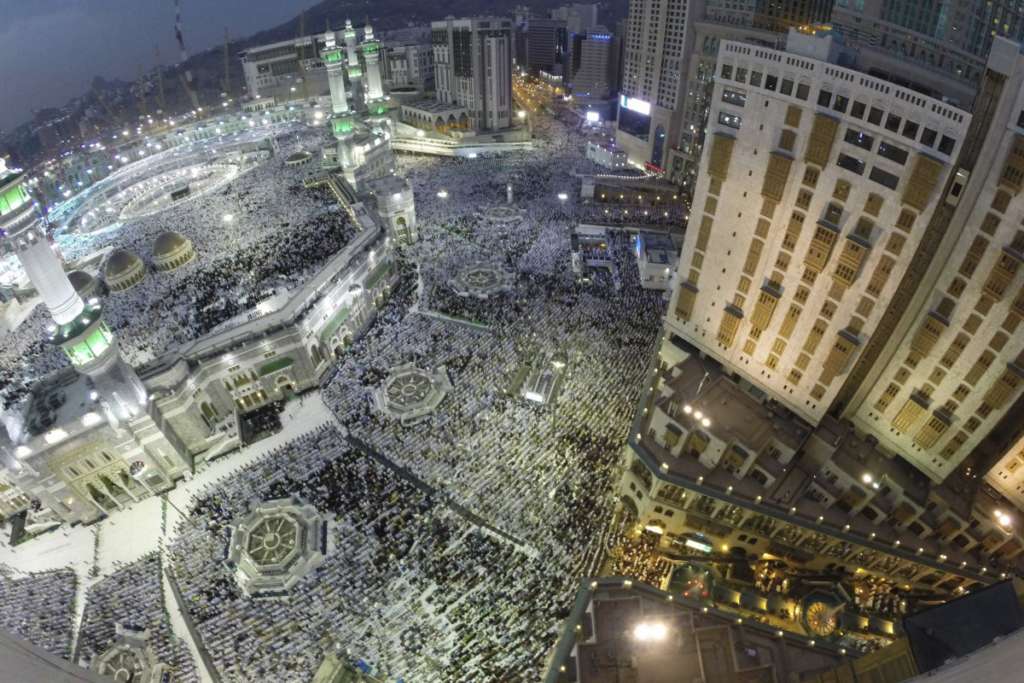Washington, London, Cairo-Friday witnessed a horrendous act of transgression against the Islamic faith after Iran-aligned militias having launched a failed attack on the holy city of Makkah in Saudi Arabia. The attack shocked the entirety of Muslim nations.
Houthi militiamen fired a border crossing ballistic missile– however; Saudi Arabia said the missile was “intercepted and destroyed” 65 kilometers from Makkah, which is home to the Kaaba that the world’s Muslims pray toward five times a day.
The attack drew in international condemnation from renowned Arab and Islamic institutions.
Saudi Arabia’s Foreign minister tweeted that Yemen’s Iran-backed militias had violated a core holy site for Islam and all Muslims. The act infringes on fundamental reverence and integrity for religious sites.
More so, Washington condemned the attack– “These types of attacks are unacceptable,” said U.S. State Department spokesman Mark Toner.
“There is no military solution to this conflict and (we) urge all sides to exercise restraint and immediately and publicly agree to an unconditional cessation of hostilities,” added Toner.
The Houthis and their allies, including forces loyal to former Yemeni President Ali Abdullah Saleh, have a stockpile of Soviet-era Scud missiles and locally designed variants. A Houthi ballistic missile fired earlier this month targeted Taif, home to Saudi Arabia’s King Fahd Air Base, which is also near Makkah.
The series of cross-border attacks launched by Yemen’s Iran-aligned militias raise deep concerns, given that it sounds a grave violation to international laws and sovereignty, other sources at the U.S. State Department told Asharq Al-Awsat.
Both Muslim leaderships and Arab writers were quick to react in condemnation, emphasizing that the attack on Makkah “was an attack on all Muslims, not just Saudi Arabia.”
Saudi clerics and scholars voiced loud condemnations, labeling the assault as an undisputedly “great crime.”
Bahrain also condemned the Houthis’ action against Makkah, saying that this was an act of provocation to all Muslims in the world.
Qatar denounced the attempt to attack Makkah. “This is an outrageous aggression against the sanctity of the holiest Islamic shrine and a provocation to the religious sentiments of millions of Muslims around the world,” the Qatari foreign ministry said in a statement.
The statement reiterated support for Saudi Arabia’s relentless efforts to ensure the regional security and stability and its efforts to achieve peace in Yemen in accordance with the U.N. Security Council Resolution 2216, the GCC initiative and the Yemeni National Dialogue.
Even more, Kuwait strongly condemned the missile attack against the holy Makkah region.
Targeting Muslims’ qibla is a provocation of their feelings, neglect of the holiness of the blessed spot and disregard of Islamic sanctities, an official source at the foreign ministry said in a press statement.
The statement added that the brutal aggression is considered a grave development, an insistence on rejecting and defying the will of the international community, as well as its efforts to enforce a truce for the aspired political solution that rids Yemen and the entire region from the continuation of the bloody conflict and its repercussions.
GCC head Abdullatif Al-Zayani said in a statement issued Friday: “The council considers this brutal assault, which violates that sanctity of this country, a provocation to the feelings of Muslims, and disregard for Islamic holy sites, and evidence of Houthis’ refusal to obey the will of the international community and its decisions, to apply the existing armistice, and tireless efforts to reach a political solution to the crisis in Yemen.”
UAE Foreign Minister Abdullah bin Zayed said on his Twitter account: “The Iranian regime that supports a terrorist group which targets Holy Makkah, is this an Islamic regime as it claims?”
More so, An Egyptian foreign ministry statement on Friday announced Egypt’s “full solidarity” with Saudi Arabia and stressed its support of the internationally recognized government in Yemen, which is backed by the Saudis.
Egypt condemned the missile attack calling it an “unacceptable precedent” and a “disregard to the sanctity of Muslim holy sites that should not pass in silence”—denouncing the attack, Egypt authorities warned that the assault represents a “dangerous escalation.”
Al-Azhar, Sunni Islam’s center of learning, in Cairo condemned the “treacherous” attack and said it cannot happen from anyone who has some faith in Islam.
Jordanian government spokesman Mohammed Al-Momani said that “such heinous acts serve neither the Yemeni cause, nor the Arab and Muslim causes.”
“Any attack against holy places would expand the cycle of violence,” Al-Momani said, while reiterating calls to adhere to legitimacy and restore security of Yemen.
Jerusalem’s Grand Mufti Muhammad Ahmad Hussein also said that the attack on Makkah “sets a very dangerous precedent.”
“It is very unfortunate that this attack today might fuel an already sectarian-strife region. The Sunnis of the Arab world don’t believe in dividing the religion as we accept that Allah will welcome any Muslim as long as he or she is repentant of their sins. Unfortunately, though, the attack on Makkah represents a sectarian angle where you have someone like Iran attacking a place of worship,” Hussein told reporters.
Turkey’s Foreign Ministry statement denounced the attack saying: “We are glad that the attack was blocked by Saudi security forces.”
Yemen has been wracked by chaos since late 2014, when the Houthis and their allies overran the capital Sana’a and other parts of the country, forcing members of Yemen’s Saudi-backed government to temporarily flee to Riyadh.
The conflict escalated in March of last year when Saudi Arabia and its Sunni-Muslim allies launched a massive military campaign aimed at reversing Houthi gains in Yemen and restoring the country’s legitimate government.
